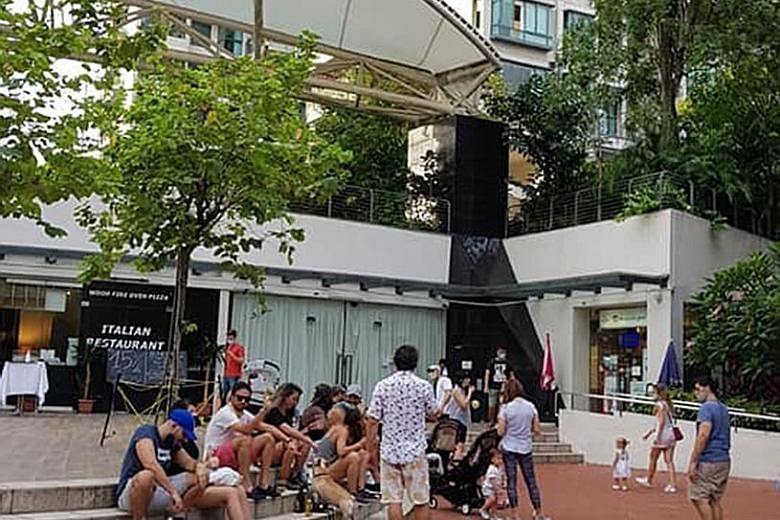The Covid-19 outbreak has stressed Singapore's social fault lines and increased tensions between foreigners and locals, Culture, Community and Youth Minister Grace Fu said at a dialogue on race yesterday.
She cited certain locals' "visceral reaction" to reports of foreigners gathering, drinking and flouting social distancing rules at Robertson Quay.
"When that video came out friends told me that yes, (there were also) expatriates in Singapore Botanic Gardens (gathering) and so on. It is not just restricted to one place, but somehow when we see a group of people that look different from us, there is a visceral reaction," said Ms Fu, who noted that before police investigations had been completed, there were already calls for the foreigners to be deported.
Speaking to 150 participants at a dialogue on race relations that explored how Covid-19 has brought issues of race, racism and xenophobia to the fore, Ms Fu stressed the importance of social cohesion during times like these.
"In the worst of times, it is easy to blame someone who is different from ourselves, (whether) it is due to race, religion or nationality. What we must realise is that viruses do not discriminate, people do," she said, mentioning the case of the self-proclaimed "sovereign" woman and that the instinctive reaction of some was to label her as a foreigner even though she is Singaporean.
This fourth session of the Regardless Of Race dialogue series was organised by OnePeople.sg - the national body promoting racial harmony - and interfaith initiative Roses of Peace in partnership with SMU Apolitical, a political association at the Singapore Management University (SMU), and The Straits Times. It took place on Zoom.
Topics raised included how xenophobia and racism manifest during a crisis and how they can be tackled. With Covid-19, race and other contentious issues have resurfaced as well, said Ms Fu, including those involving religion and the disparity between the haves and have-nots.
One example cited was the fact that when home-based learning was instituted, not every family could afford a laptop for each child or provide a conducive home environment or Internet access.
The other panellists were Dr Augustine Pang, professor of communication management (practice) at SMU; Mr Zakir Hussain, news editor at The Straits Times; Ms Fahima Farha, vice-president of Roses of Peace; and Dr Alicia Altorfer-Ong, board president of Sunshine Initiative Singapore, a society that seeks to protect sex workers.
The session was hosted by Senior Minister of State Janil Puthucheary, who chairs OnePeople.sg. The series aims to get more Singaporeans involved in honest, open conversations on sensitivities around race and encourage ground-up efforts to address them.
During the discussion, where comments were not to be attributed, speakers talked about the role of the media and crisis management communication in either enhancing or undermining resilience during the pandemic, as well as some of the ground-up efforts being taken.
They also touched on the need to show more compassion and empathy, and suggested that rather than resorting to vigilantism, people could take a different approach to addressing issues they observe - such as giving masks to those not wearing them rather than posting their photos on social media.
Ms Fu also cited efforts by groups like the Inter-Racial and Religious Confidence Circles, National Integration Council and other religious and community groups. She also called for people to find innovative ways of engagement, and take action in areas that they care about, such as countering vitriolic posts and sharing positive stories instead.
"Help extended during difficult times will be remembered and will define us for years to come. So this is our chance to prove what kind of people we are," she said.
In closing remarks, Dr Janil noted that racial fault lines and xenophobia are likely to be exacerbated as the economic situation worsens. He said there is a need to recognise that such sentiments are wrong, and people need to come together as a community to alleviate them.


